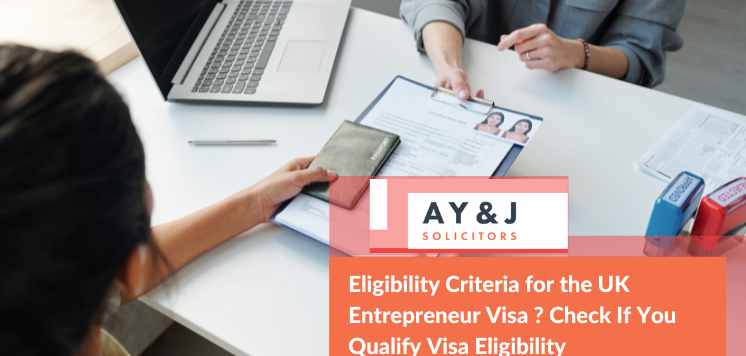The UK Entrepreneur Visa, also known as the Tier 1 Entrepreneur Visa that allowed entrepreneurs to come to the UK to start or take over a business. However, the UK government closed this visa category to new applicants in 2019. Current holders of the visa can still apply for extensions and Indefinite Leave to Remain (ILR)The eligibility criteria for a UK entrepreneur visa may include:
English language: Applicants must demonstrate English language skills at a minimum of Level B2 on the Common European Framework of Reference for Languages.
Business plan: Applicants must create a detailed business plan that outlines their proposed activities in the UK, including market research, financial projections, and growth potential.
Access to investment funds: Applicants must have access to investment funds of £50,000 or £200,000.
Sufficient funds: Applicants must demonstrate that they have sufficient funding and a reliable source of funding.
Business activity: Applicants must be engaged in business activity.
New jobs: Applicants must have created new jobs.
Support themselves: Applicants must have enough funds to support themselves in the United Kingdom. The UK government also offers the Innovator Founder Visa, which is designed for individuals with an innovative business idea they intend to develop in the UK. Like the self sponsorship visa UK this visa offers flexibility, including no upfront investment requirement and the ability to work additional jobs.
Here is a brief comparison between the UK Entrepreneur Visa and the Self-Sponsorship Visa UK Route
- Eligibility Criteria:
Entrepreneur Visa: This route is designed for individuals who want to establish or run a business in the UK. You need to prove access to a minimum amount of investment funds (£50,000 or £200,000, depending on the specific visa). - Self-Sponsorship Visa: This Route allows individuals to sponsor themselves without the need for a UK employer or a traditional job offer. It’s ideal for entrepreneurs who have a business or plan to work as self-employed professionals, like consultants, freelancers, or contractors.
- Investment Requirement:
- Entrepreneur Visa: Requires significant funding to set up or set up a business in the UK.
- Self-Sponsorship Visa: No large investment is required, making it more accessible to those with limited funds but strong business ideas or freelance skills.
- Business Ownership:
- Entrepreneur Visa: You must actively run and manage a business that will contribute to the UK economy.
- Self-Sponsorship Visa: You can work as a self-employed individual without owning a large business, providing flexibility for freelancers or consultants.
- Application Process:
- Entrepreneur Visa: The application process is longer and more complex, with a focus on business planning and investment.
- Self-Sponsorship Visa: The process is simpler and quicker compared to the Entrepreneur Visa, allowing faster entry into the UK job market.
Why Choose A Y & J Solicitors for Your Self-Sponsorship Visa?
At A Y & J Solicitors, we specialize in helping clients handle the Self-Sponsorship Visa process. Our expertise ensures a smooth, effortless application experience. With our knowledge of the latest UK immigration rules and customized solutions, we provide you with the best chance for success in securing a Self-Sponsorship Visa. Let us handle the paperwork while you focus on building your business or career in the UK!









